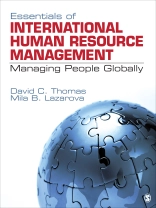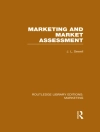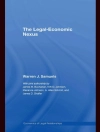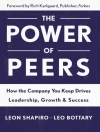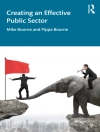With increasing globalization comes the need to understand human resource management (HRM) more broadly across countries, cultures, institutions, and organizational types. Designed to help readers explore and understand the key concepts and latest research behind the strategic management of people in organizations that operate in a global context, this accessible book provides concise coverage of HRM concepts, balancing comparative approaches and US and non-US schools of thought. Not limited to the multinational firm, the book reflects the most current knowledge in the field and considers all types of organizations embedded in the global context. Chapter-opening vignettes (short cases) exemplify the chapter’s core topics and show readers how chapter content can be applied. Extensive references make it easy for readers to explore concepts in more depth.
Table des matières
List of Tables and Figures
Preface
Acknowledgments
Chapter 1. Globalization and Human Resource Management
Chapter 2. Cultural and Institutional Context of Global Human Resource Management
Chapter 3. Organizational Context of Global HRM
Chapter 4. Transfer of HRM Across Boundaries
Chapter 5. HRM in International Joint Ventures, Mergers and Acquisitions, and Collaborative Alliances
Chapter 6. Global Staffing
Chapter 7. Global Human Resource Development
Chapter 8. Global Performance Management and Compensation
Chapter 9. International Mobility and Global Careers
Chapter 10. International Employee Representation and Corporate Social Responsibility
Chapter 11. Emerging Issues in Global HRM
Appendix: GLOBE Country Scores
Cases
References
Index
About the Authors
A propos de l’auteur
Mila B. Lazarova (Ph D, Human Resources and Industrial Relations, Rutgers, the State University of New Jersey; MBA, International Business, the University of National and World Economy, Sofia, Bulgaria) is associate professor and Canada research chair in Global Workforce Management in the Beedie School of Business, Simon Fraser University, Canada. Her research interests include expatriate management with a focus on repatriation and the career impact of international assignments; work-life balance issues related to assignments; global careers; the role of organizational career development and work-life balance practices on employee retention; and the changing role of the human resources (HR) department in organizations. She also conducts research in comparative human resource management and is the Canadian contributor to CRANET, a long-term research collaboration of over 35 universities across the world that carries out a regular international comparative survey of organizational HR policies and practices.
